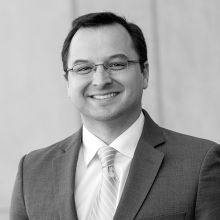Envisioning a Civil Court System that Provides Justice for All
 Faced with rising numbers of people in poverty, funding deficiencies, and an increase in self-represented litigants in state courts, the Conference of Chief Justices and the Conference of State Court Administrators unanimously passed Resolution 5, in July 2015, to address these issues directly and to reaffirm their commitment to meaningful justice for all.
Faced with rising numbers of people in poverty, funding deficiencies, and an increase in self-represented litigants in state courts, the Conference of Chief Justices and the Conference of State Court Administrators unanimously passed Resolution 5, in July 2015, to address these issues directly and to reaffirm their commitment to meaningful justice for all.
They envisioned a legal system that could:
- Provide everyone with access to effective assistance for their essential civil legal needs through a comprehensive approach that provides a continuum of meaningful and appropriate services;
- Call for courts, Access to Justice Commissions or other such entities, and other essential partners to work together to develop strategic plans within each state; and
- Urge the National Center for State Courts and other national organizations to develop tools and provide assistance to states in achieving their goals.
These guiding principles have been incorporated into a project, supported by the Public Welfare Foundation and housed at the National Center for State Courts, known as the “Justice for All” Project. The Justice for All project will proceed over 2 grant cycles, with the first cycle focusing on the creation of Strategic Action Plans within each participating state and the second cycle focusing on the implementation of each strategic action plan.
In order to assist the states in applying for the grants, strategic planning guidance materials were created by the Justice for All Expert Working Group at the National Center for State Courts. The first guide helps each state identify and inventory their resources, services, and capabilities. The second guide helps each state to design a strategic action plan to meet the legal needs of its community and address gaps in current services. Additionally, a webinar was created that discusses the Justice for all Project RFP application and process.
The project is now underway to improve justice for all
The first grant cycle saw a great deal of interest from the states with 25 states applying to be part of the project. The project was able to award the Justice for All grants to 7 States (Alaska, Colorado, Georgia, Hawaii, Massachusetts, Minnesota, and New York) who are now taking steps toward reinventing legal access. In seeing the commitment that was demonstrated by a large number of states, Chief Justice Ralph Gants of the Massachusetts Supreme Court stated that “we are thrilled that so many states—half of the country—demonstrated their commitment to fulfill the promise of the resolution by applying for the grants.” He continued by stating that “we hope that all of these states, even those that we were unable to award grants, will find ways to build on the momentum they have made to identify, coordinate, and utilize the available resources to help those unable to afford counsel address their legal problems.”
With the first phase of the project underway, the 7 awardee states are now working to envision and design systems that will permit all persons to have effective assistance to solve their civil legal problems. Their successes will be shared with the country, moving the United States a step closer toward fulfilling its promise of full access to justice for all.
NCSC is hosting three webinars over the next year to provide additional information on the Justice For All strategic action planning process. Non-awardee states can learn from the experiences of awardee states and pose questions. The first webinar, focused on the inventory/assessment experience, will be held today, July 31, at 4:00pm EDT. NCSC and project staff are also offering targeted consulting for non-awardee states, designed to give input and guidance based on the individual state needs.


